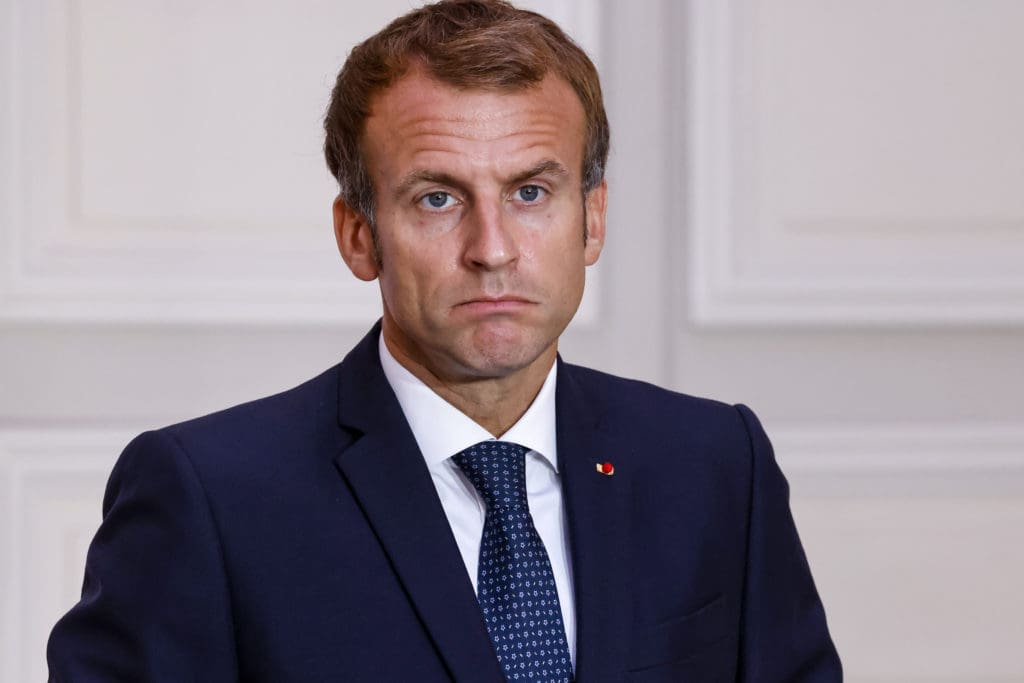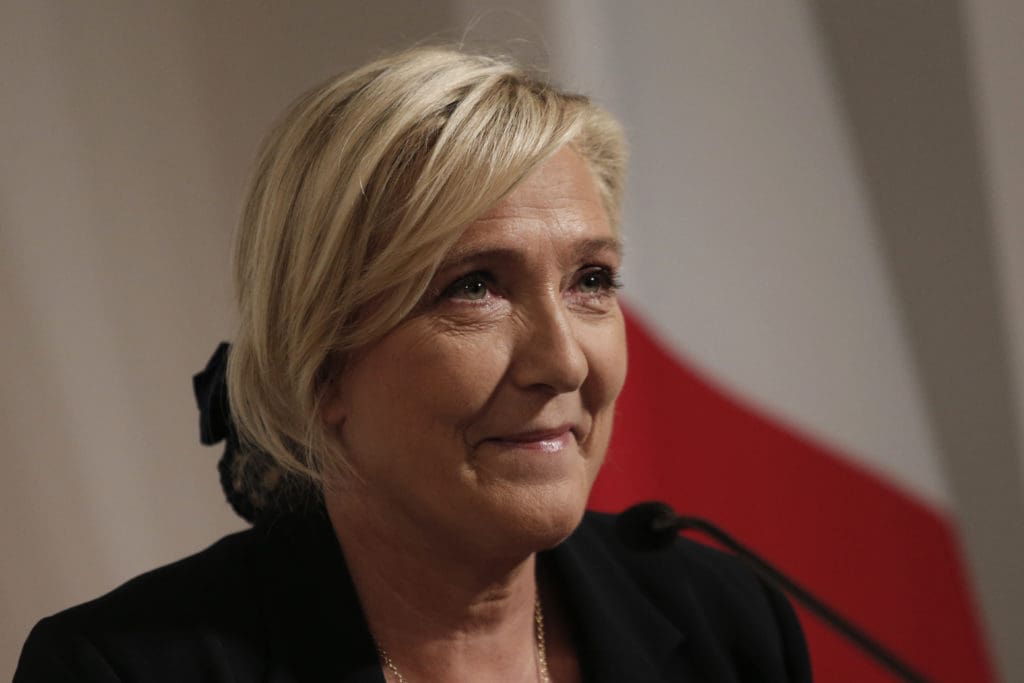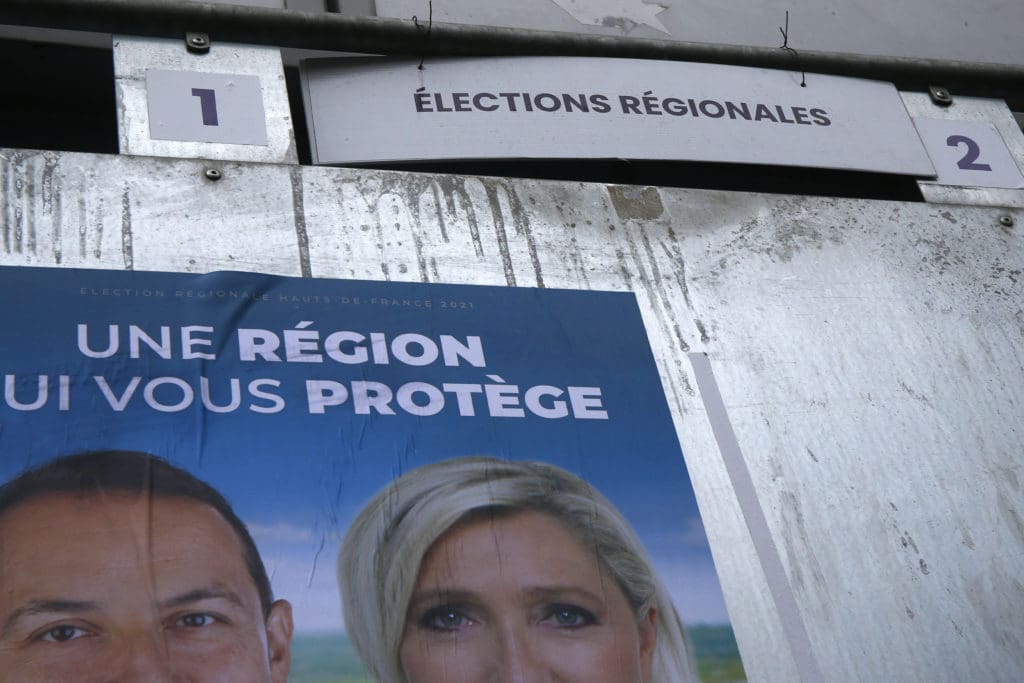Should Emmanuel Macron and Marine Le Pen start worrying? A third potential contender is not yet a presidential candidate but continues to climb in the polls after the authorities have clumsily tried to censor him. In the latest polls, the conservative essayist, journalist, and columnist Éric Zemmour, who is fiercely opposed to the French policy of mass immigration, caused confusion last week after a poll published on Sept. 27 put him at 13 percent of voting intentions. And then a new poll published on Oct. 1 showed he could even get 15 percent of the popular vote if the next year’s presidential election was to take place now. Support for Zemmour in opinion polls has risen threefold since July and twofold in the last month.
Marine Le Pen suffers the most from Zemmour’s inclusion in the polls: she is left with 16 percent of voting intentions, while she would get 25 percent in the first round of the presidential election without Éric Zemmour in the race, on par with the incumbent president, Emmanuel Macron.

On the center-right, the best-placed of the possible candidates, the centrist Xavier Bertrand, who is now also adopting a security and anti-immigration stance for his campaign, is at 14 percent. Without Zemmour, the center-right candidate, whoever he or she may be, would get 2 or 3 additional percentage points.
On the left, far-left candidate Jean-Luc Mélanchon would get 9 percent of the vote, as would also the Green Party candidate Yannick Jadot. The Socialist candidate, Paris Mayor Anne Hidalgo, would only get 5.5 percent of the vote if the election were held today.
In other words, between the Gaullist Éric Zemmour, for whom Islam is a totalitarian ideology and France is being colonized, the candidate of the National Rally (RN) who promises to stop immigration altogether, and the best-placed of the center-right candidates who wants annual immigration quotas to be voted by parliament and now promises, like Zemmour and Le Pen, a referendum on immigration, the candidates on the right of the centrist Emmanuel Macron, who claims he, too, wants to curb immigration and crack down hard on crime (which he has not done so far), would get 45 percent of the vote in the first round, and even 47.5 percent if we take the smaller candidates into account.

The novelty is that all three best-placed potential candidates of the center-right are now saying they are in favor of radical changes in immigration policy and are even promising to put an end to family reunification. Even the former Eurocrat Michel Barnier, who was the Brexit negotiator for the European Commission, now wants a referendum on immigration. And that’s not all: Barnier says he wants France to recover some of its sovereignty unduly confiscated by the judges of the European Court of Justice. This earned him being called “the biggest hypocrite ever born” by Nigel Farage, the man who caused Brexit by forcing a referendum on the British Conservative Party.
On Emmanuel Macron’s left, candidates openly (unlike the French president who says the opposite of what he does) in favor of multiculturalism and an open borders policy total just 23.5 percent of the vote, or 28.5 percent if you include the smaller candidates.
The real issue today in the French presidential election of 2022, presented on the right as a last chance election before the chaos that will lead to the end of France, is who will face the incumbent president. If Éric Zemmour becomes a candidate, the chances are high that Marine Le Pen will be overrun from her right side, after having pushed her party towards the center in an unsuccessful attempt to “de-demonize” it in the mainstream media.

Until now, Marine Le Pen was certain to make it through the first round, while many supporters of the National Rally do not believe she is capable of winning the second round. Will Éric Zemmour be the much-awaited truly conservative and patriotic candidate of a French right-wing electorate which has up to now always been betrayed by the center-right party that claimed to represent it, whether under Valéry Giscard d’Estaing, Jacques Chirac or Nicolas Sarkozy?
His progress in the polls is impressive. In July, he was given 5 percent of the vote if he were to run. In August, he reached 7 percent. In mid-September, polls showed him breaking the 10 percent bar for the first time, and he is at 15 percent two weeks later.
Marine Le Pen, on the other hand, was at 24-27 percent in the polls in July and it was only in the second half of September that she fell below 20 percent when taking a possible Zemmour candidacy into account.
This is why the publication on Sept. 27 of a poll giving Zemmour at 13 percent and Le Pen at 16 percent provoked numerous reactions from Les Républicains and their would-be candidates. Several center-right leaders called for a “sanitary cordon” to be established around Zemmour, as has been done for decades with the Le Pen family, because, according to them, Zemmour is like Marine Le Pen’s father and makes her appear to be left-wing.
It is true to say that, contrary to Marine Le Pen, Zemmour does not fear to talk about immigration as being population-replacement immigration posing a threat — in the medium-term — on the identity and even the existence of France. Unlike Marine Le Pen, Éric Zemmour does not distinguish between Islam and Islamism and considers that Muslims who want to stay in France must assimilate into French society by becoming members of the nation before being members of the Islamic Ummah (community). Zemmour often puts forward his own family as an example of successful assimilation, his parents being of Jewish Algerian origin.
Zemmour is also in favor of leaving NATO, which Le Pen does not want. Concerning the European Union, he proposes opt-out policies in areas where French interests are threatened by EU policies. Marine Le Pen is less clear on this subject. However, like Marine Le Pen today, Zemmour does not talk about leaving the European Union or even the eurozone. The hypothesis of a victory for either of them would completely change the situation in Brussels.
Like Marine Le Pen and the National Rally, Zemmour often speaks in favor of Hungary and Poland against the attacks from Brussels and in the French mainstream media. He was at the Budapest Demographic Summit on Sept. 25 and met with Hungarian Prime Minister Viktor Orbán.
For the second round of the French presidential election which is due to take place in April next year, opinion polls do not yet take into account the Zemmour hypothesis, and the poll that gives Marine Le Pen only 16 percent of the vote in the first round credits her with 46 percent of voting intentions in the second round, against 54 percent for Emmanuel Macron. Whichever “populist” right-wing candidate opposes the liberal-progressive Emmanuel Macron, a victory is therefore not out of reach.
The risk, however, if Zemmour runs, would be that the center-right candidate would qualify for the second round instead of Zemmour or Le Pen. Such a candidate might have a better chance of winning against the ultra-progressive Emmanuel Macron, but as Spanish Vox MEP Hermann Tertsch pointed out a week ago in an interview with Remix News, in Europe these center-right parties “harvest the votes of conservative people and then have left-wing policies once in power.” Tertsch pointed this out for the Spanish Partido Popular (PP) and the German CDU, but the same applies to the French LR party.
LR, however, seems less and less able to deceive its voters, and this is probably why it received a record-low 8 percent of the vote in the last elections to the European Parliament and its would-be candidates now stand at only 12-14 percent of voting intentions in presidential election polls.
For Zemmour, LR is a “party of centrist notables” that has “betrayed General de Gaulle.” This seems to be confirmed by the reactions of the leaders of the center-right party, who would rather support Emmanuel Macron than Le Pen or Zemmour.
Indeed, for the LR speaker of the Senate, Gérard Larcher, “Éric Zemmour is the candidate of the extreme right.” The leader of the LR group in the National Assembly, Damien Abad, assured after the Sept. 27 poll giving Zemmour 13 percent that “Éric Zemmour dreams of himself causing a populist tsunami, but Les Républicains will be an impenetrable dam.”
“The Zemmour phenomenon symbolizes our renunciations: on immigration and security, in particular. It is up to the right to propose a program on these subjects to the French,” Gérard Larcher said on Sept. 27.
But will the French let themselves be taken in once more?





